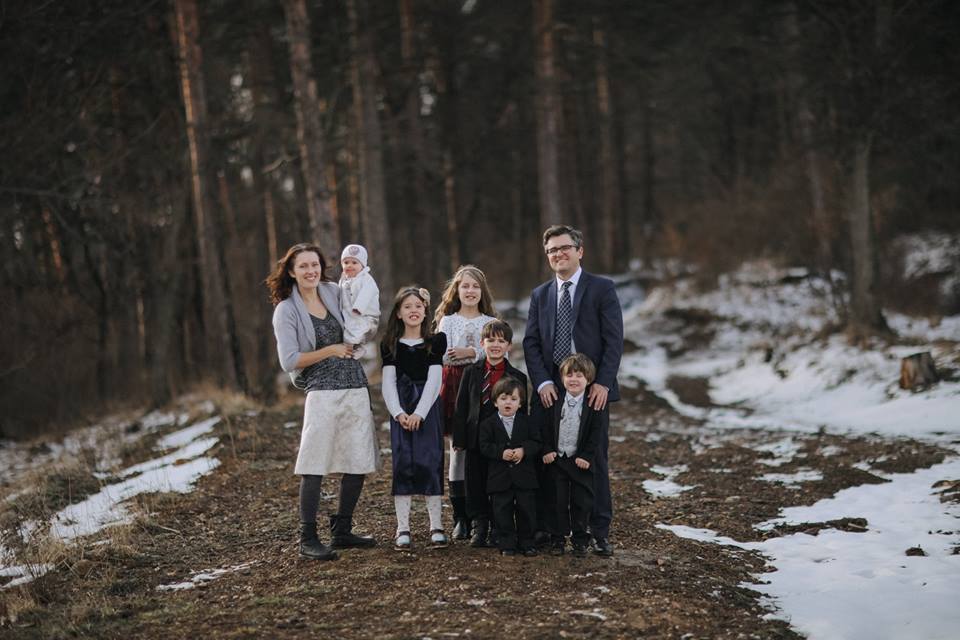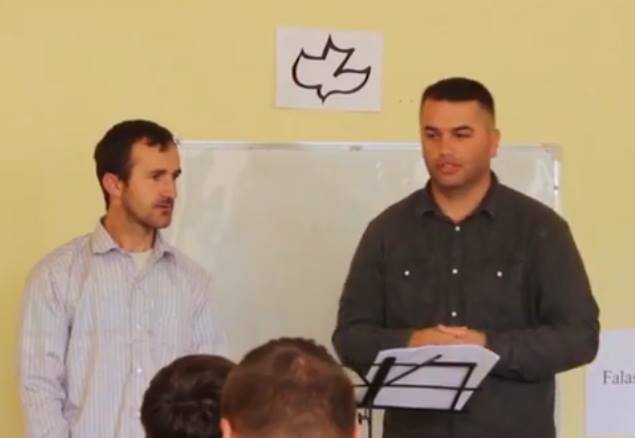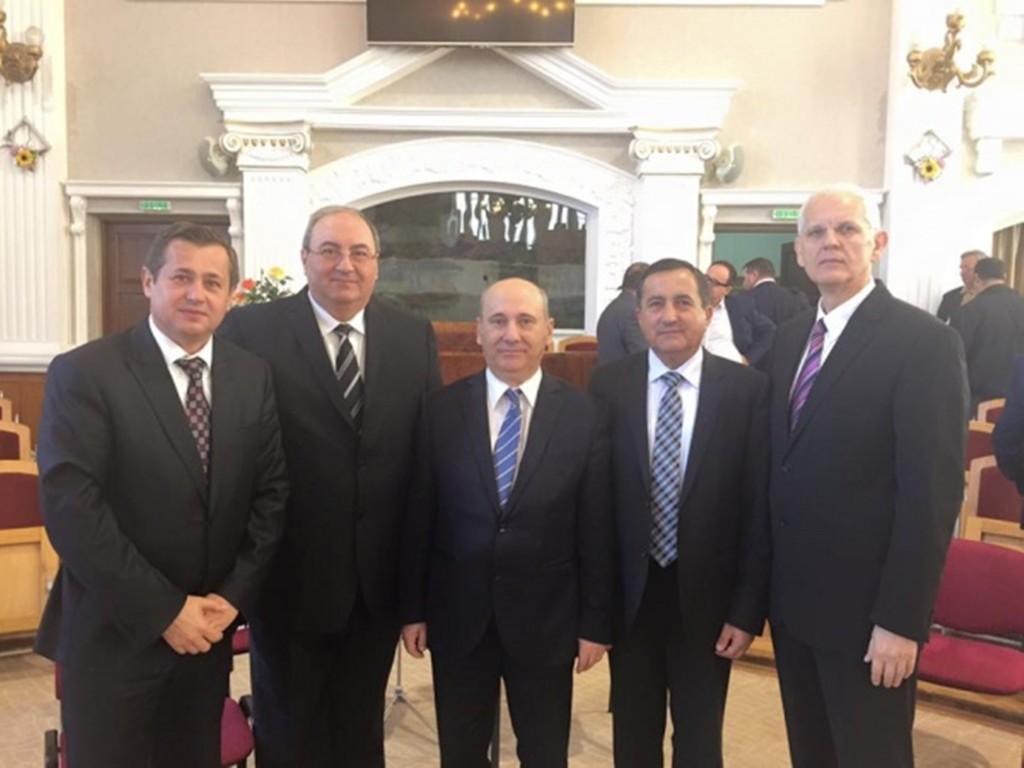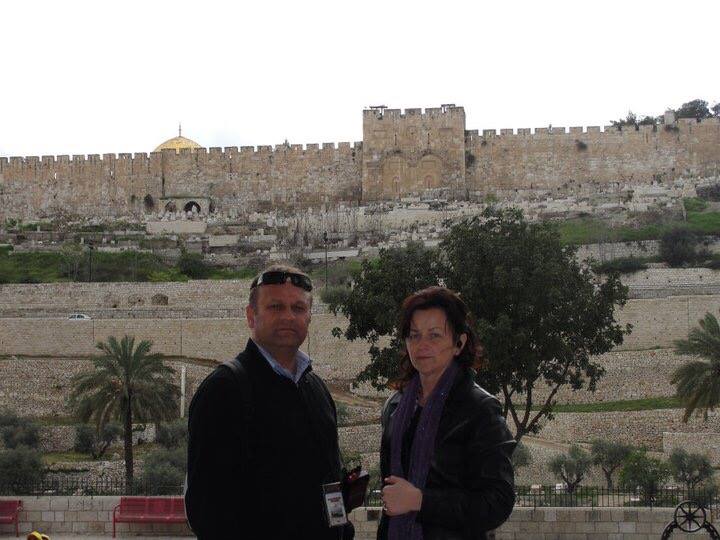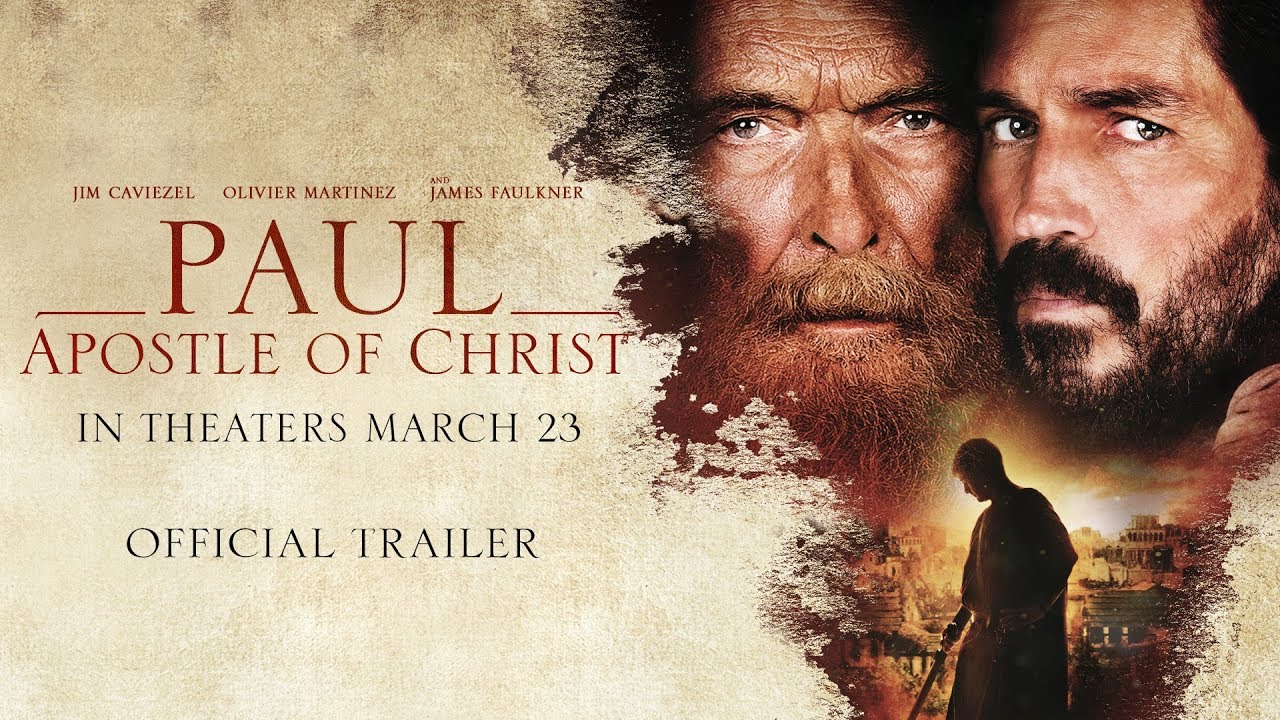Wives, submit to your husbands as to the Lord. For the husband is the head of the wife as Christ is the head of the  church, His body, of which He is the Savior. Now as the church submits to Christ, so also wives should submit to their husbands in everything (Eph 5:22-24).
church, His body, of which He is the Savior. Now as the church submits to Christ, so also wives should submit to their husbands in everything (Eph 5:22-24).
When Fergie married Andrew we marveled at the days of pageantry surrounding the wedding, but what most of us remember is a moment when their vows were taken. Fergie was supposed to say to her groom, “I promise to love, honor, and obey…” She did say the phrase, but not without a sideways grin at the Prince that said much more. Her look could hardly have more clearly articulated the new Duchess’s thought: “You gotta be kidding. Nobody really believes those anachronisms about wifely submission anymore, and you had better not!” She repeated the vows, but with a toss of her head Fergie as clearly tossed away the content of those words without any indication of what commitments should or could take their place. In hindsight, that smirk of bemused lip service to traditions not intended to be truly honored has become a sad illustration of a royal marriage gone awry. But it is not merely royalty to whom the illustration applies.
It is my guess that if we strip away party platforms and lip service we too readily give to the official positions of our churches, political agendas, families, or traditions we will also find large question marks remain in all the thinking people about the current responsibilities of women in marriage. Hal Farnsworth, a Reformed University Ministries campus minister at Vanderbilt, tells me, “It does not matter whether the intelligent women on my campus are liberal feminists or conservative traditionalists, if you can get them to talk honestly about their deepest concerns most will say that even when they make choices according to one perspective that they constantly wonder if they are right. Deep down they are desperate for a credible authority to tell them what women are supposed to be.”
 Sadly, our churches have not proved to be a credible enough authority to settle the issue even among themselves. I know of some churches that have urged women fed up with abusive husbands to leave their marriages. Others have used discipline to try to force women to submit to husbands guilty of the same offenses under the assumption that the abuse is a result of the women not being submissive enough. I hear the resultant confusion among my own relatives as women long committed to marriage and deeply desiring to honor Scripture have after decades of sacrifice cried out in emotional exhaustion and spiritual agony, “I know the Bible says to submit, but I can’t continue to live this way. I have tried, but I can’t keep on. I just can’t.”
Sadly, our churches have not proved to be a credible enough authority to settle the issue even among themselves. I know of some churches that have urged women fed up with abusive husbands to leave their marriages. Others have used discipline to try to force women to submit to husbands guilty of the same offenses under the assumption that the abuse is a result of the women not being submissive enough. I hear the resultant confusion among my own relatives as women long committed to marriage and deeply desiring to honor Scripture have after decades of sacrifice cried out in emotional exhaustion and spiritual agony, “I know the Bible says to submit, but I can’t continue to live this way. I have tried, but I can’t keep on. I just can’t.”
From palaces to campuses to churches to our homes and hearts the questions echo: What really is a wife supposed to love, or to honor, or to obey? I do not have all the answers to the questions this fragmented and broken society demands that I consider. However, I do know that some of the flip answers we often give do not consider the complexity of our age, the dignity of each person, and the authority of God’s Word. Many of these principles appear in this passage which I cannot read without discovering a rather straight answer to the ultimate question we have to ask: “What is a Christian wife to be?” The inescapable answer here (for those who believe this Word is authoritative) is stated directly–a Christian wife is to be submissive. However, lest that answer merely be simplistic, we must carefully assess the requirements, nature, and goals of this submission.
The Duty of a Christian Wife
The duty to which God calls Christian wives could hardly be more clearly stated by the apostle: “Wives submit to your husbands as unto the Lord” (vs. 22). However, as you well know, simply repeating the word “submit” or even giving its Greek origin (which means “to arrange under”) does not tell us all we feel we have to know. What does Paul intend for us to understand by submission?
Submission Does Not Mean “Nothing”
We know that submission cannot be an incidental term without meaning because of the comprehensive ways in which it is addressed. If we do not understand what submit means Paul first gives us a comparison analogy. Wives are to submit to their husbands “as to the Lord” (vs. 22). As all persons should arrange their lives under the righteous purposes of their Lord so wives should prioritize their lives relative to husbands’ purposes in God’s kingdom. Lest that comparison prove insufficient, the apostle then adds a more compelling example of his thought based on the relationship of Christ and the church. As the church submits to Christ as its head, so wives should submit to their husbands’ headship (vs. 23-24). As the church would never think it could fulfill its purposes without submission to the holy will of its Lord, the apostle reminds women that they cannot fulfill their divine purposes if they are not submitting to the biblical purposes of their husbands. Finally, lest we assume Paul only means these standards to apply to some narrow part of life, the apostle clarifies the comprehensive extent of his instruction by saying that “wives should submit to their husbands in everything (vs. 24).” These really are comprehensive words.
 The Scope of Scripture’s Witness
The Scope of Scripture’s Witness
As comprehensive as these words appear in this place, however, we might still find a way to narrow their intent if this seemed to be an exceptional passage. Then, our culture as well as our biblical interpretation principles of letting Scripture interpret Scripture and allowing clearer passages to interpret less obvious passages might well lead us to conclude these “submission” words do not really mean anything for us. We cannot draw such a conclusion in light of the consistent commitment of Scripture to these concepts.
Note that wives are instructed three times in this passage alone to subject their priorities to their husband’s authority. Paul uses the same or related terminology about husbands and wives in at least five other books (viz. 1 Corinthians, Ephesians, Colossians, 1 Timothy, and Titus). The Apostle Peter also tells wives, “be submissive to your husbands so that, if any of them do not believe the word, they may be won over without talk by the behavior of their wives” (1 Pt 3:1). This “gentle and quiet spirit” Peter then ties to Israel’s earliest history saying it was with such a demeanor that “Sarah obeyed Abraham” (1 Pt 3:4-6). Paul goes back even further in the Ephesians and Corinthians passages by relating this order of family relationships to the events of creation (vs. 31). The effect of this consistent witness is to spread the instruction for wives to submit to husbands not only over one passage, but across the Pauline material, through the New Testament, to Israel’s origins and throughout humanity’s history. Submission (so comprehensive in its imperatives, scope, and duration) cannot mean nothing.
Submission Does Mean Something
The something that submission means is perhaps most obvious in light of the purpose it fulfills. Paul reminds us of this when in the same passage he refers to the genesis of the marriage relationship saying, “For this reason a man will leave his Father and mother and be united to his wife and the two will become one flesh. This is a profound mystery…” (vs. 31, 32). These words tell us that submission is the pouring oneself into the completion of another. It is the sacrificing of self to make a relationship, and those in it, whole. Paul says this is a profound mystery and we can well attest to that. It is so past our explaining (and yet so obvious to us) that God has made those of us not gifted for celibacy so that we are never quite whole–in our relational maturity, in our personal development, or even in our spirituality–without those he intends to complement and complete us in marital oneness.
We will look at another individual (or even at ourselves) after a few years of marriage and say, “That person has so matured, so leveled out, or become so less self-absorbed since marrying so and so.” At least, that is what we say if the marriage is functioning well. If the marriage is going poorly, we typically recognize that the self-absorption, immaturity, or character flaws may be even more prominent. When the real oneness God intends for marriage does not occur, then the people themselves become less whole. Though this is a mystery it fits precisely with the pattern of Scripture which tells us that since God made us such that marriage would make us whole, then the abuse or neglect of that union must damage us.
Ultimately it is this knowledge of the way in which our lives affect each other that directs our understanding about  what the apostle says here about the mutual responsibilities of marriage. To the husband is given the authority for the sacrificial responsibility of biblical headship that is designed to lead a family in the paths of God. To the wife is committed the nurture and care to support him so that he can carry out these responsibilities. Each has responsibility for the other to the end that the family unit as a whole is whole and healthy before God. Note this goal is much clearer than a specific set of behaviors imposed on every couple despite differing personalities, gifts, and situations. We are not obligated by some simplistic imposition that determines who takes the garbage out, who washes dishes, or how many hours outside of the home a spouse may work or play without crossing some definite biblical threshold of marital correctness. The responsibilities of marriage are determined at the deepest levels of the Christian heart, and call for the most diligent, honest, conscientious questions of self-examination. The husband must not only ask, “Am I leading my family to a better knowledge of God?” but also, “Is my leadership self-serving or sacrificial?” Similarly, the wife must not only ask, “Do my actions, words, and attitudes enable my husband to lead my family to a better knowledge of God?” but also, “Have I truly in everything submitted my life to this highest priority?”
what the apostle says here about the mutual responsibilities of marriage. To the husband is given the authority for the sacrificial responsibility of biblical headship that is designed to lead a family in the paths of God. To the wife is committed the nurture and care to support him so that he can carry out these responsibilities. Each has responsibility for the other to the end that the family unit as a whole is whole and healthy before God. Note this goal is much clearer than a specific set of behaviors imposed on every couple despite differing personalities, gifts, and situations. We are not obligated by some simplistic imposition that determines who takes the garbage out, who washes dishes, or how many hours outside of the home a spouse may work or play without crossing some definite biblical threshold of marital correctness. The responsibilities of marriage are determined at the deepest levels of the Christian heart, and call for the most diligent, honest, conscientious questions of self-examination. The husband must not only ask, “Am I leading my family to a better knowledge of God?” but also, “Is my leadership self-serving or sacrificial?” Similarly, the wife must not only ask, “Do my actions, words, and attitudes enable my husband to lead my family to a better knowledge of God?” but also, “Have I truly in everything submitted my life to this highest priority?”
These are questions that cannot be answered by arbitrary, cultural, or merely traditional role assignments regarding such things as who gets to talk first, who writes the checks, or who gets to drive. The inappropriateness of culturally imposed rules is obvious when we understand that submission (in addition to requiring the pouring of oneself into the completion of another) involves the exercising of gifts for the glory of another. This becomes most apparent when you recognize the balanced construction of the instruction Paul gives wives and husbands in this passage. His instruction for husbands directs them to use their headship as Christ used his for the glory of his bride, the Church (vs. 25-27). The effect is to remind husbands that they must never abuse their authority so that they rob their wives of “radiance” (cf. vs. 27). At the same time wives are told not to so disregard submission that they rob their husbands of “respect” (vs. 33). Discerning how wives make sure they fulfill this obligation requires us to recognize the implications of Paul’s comparison of marriage to the relationship of Christ and the Church. The Church does not honor Christ by dispensing with the gifts and graces God provides. Rather she is called to arrange all her energies and abilities under the grand purpose of glorifying the Savior. To do less would not be submission; it would be disobedience. By this line of thought we grow to understand the wisdom of Paul’s terminology. Biblical submission truly is an “arranging under” of one’s own gifts for the glory of another. Such submission is never an abdication of responsibility for another’s welfare, nor is it an abandonment of one’s own gifts to fit a culturally determined role.
Let me indicate at least one reason why humanly prescribed behaviors are an insufficient measure of biblical submission. On a church council outside our locale there is a lay leader who asks every new pastoral candidate entering that denomination’s churches, “Does your wife submit to you?” This man’s agenda is to make each candidate prove to the council that he has control of his family the way this official thinks headship should be practiced–meaning the way he controls his own family. However, it would be tragic if candidates actually did satisfy this official.
Over the years this man’s friends have watched as his intelligent, once glowing and buoyant wife has become increasingly silent, sullen, and dowdy under his “headship.” Sadly, the more withdrawn she has become the more obnoxious, belligerent, and accusing he has become with everyone in his path. The more she retreats from her own gifts the more his faults assert themselves. You need to hear me clearly say that I am not blaming her for his faults. I am simply noting the marital results of a spouse’s suppressed gifts. Yet, despite the obvious deterioration of their Christian witness both parties in this marriage claim the wife is biblically submitting to her husband because she only talks when he allows, only leaves the home when he permits, only wears what he approves. How sad. By limiting headship and submission to a certain set of behaviors they have actually lost sight of their true biblical priorities of promoting God’s glory and, thus, they have diminished each other. I cannot prescribe the specific actions this wife should do each day, nor would I pretend to know when certain things should have been discussed between these two people in years gone by. I do know, however, (and their lives confirm this) that submitting one’s life to the good of another does not mean abandoning them to their faults, nor abandoning one’s own gifts. God does not expect anyone to minimize the gifts he grants for a worship response to his own creative character and through which he has designed the character and happiness of a marriage to mature. Submission ultimately is not the suppression of gifts but the full expression of them in behalf of another.
The Dignity of a Christian Wife
It is this expression of gifts in behalf of another that further defines submission not only in terms of duty, but also in terms of dignity. To see how biblical submission grants dignity you must examine the precise wording of this passage. Such an examination may initially yield a shock. Where our translations say, “Wives submit to your husbands” (vs. 22), the word “submit” does not appear in the original language of the text. The very word we are so ready to debate is not actually present in this verse. Interestingly its absence not only underscores the necessity of submission, it is also confirms the dignity of a Christian wife.
The Value of a Christian Wife
The place the word “submit” does appear is the preceding verse where the apostle concludes his instruction on being “filled with the Spirit,” by saying we should all “Submit to one another out of reverence to the Lord” (vs. 21). The instruction to wives then follows as only the first constituency among Christians to whom the submission mandate applies. Next will follow husbands, then fathers, then children, then slaves, then masters. The construction of the passage, thus, unfolds with the following impact:
Submit to one another…Wives, to your husbands as to the Lord (5:22-24, 33); Husbands, by giving yourselves for your wives, as the Lord gave Himself for the church (5:25-33); Children, by obeying you parents (6:1-3); Fathers, by not exasperating your children (6:4); Slaves, by obeying masters properly from your hearts (6:5-8); and, Masters, by treating slaves with respect and fairness since you are slaves of Christ (6:9).
Each person is to submit whatever gifts, rights, or authority he or she has to the good of another for the building up of Christ’s kingdom.
The reason this structure confirms the dignity of a Christian wife is that it proves that her submission does not lessen her value or diminish her place in the kingdom. All Christians are to submit themselves to the good of others whom God has placed in their lives. Although the apostle clearly assigns differing purposes to husbands and wives, he just as clearly exempts no one from the requirement of having the attitude that was also Christ’s who made himself nothing and became obedient to God’s call for selfless sacrifice (cf. Phil 2:5ff.). In Christ’s Kingdom submission does not lessen believers’ standing, it confirms their place. Christians’ responsibilities vary, their value does not. To conclude otherwise is to reason that Christ became an inferior in the Godhead when he submitted himself to the Father, or that the Spirit deserves less glory because he fulfills the purposes of the Son. By his Trinitarian nature our God has made it abundantly clear that an equality of value does not require an identity of roles.
To Respect Her Husband
Paul concludes this address to husbands and wives with the instruction for men to “love” their wives and for wives to “respect” their husbands (vs. 33). Here the apostle seems to be dealing with each gender at the weak points of our relational tendencies. Often a man’s great temptation is to use the power of his position and physique to enforce dictatorial rule or to indulge passive self-absorption. A woman’s comparable temptation is to use the power of words and emotions to diminish a husband’s influence so that she has control of the home. Paul allows neither “power play,” by commanding men to love their wives sacrificially and commending women who respect their husbands.
 Something in us instinctively knows the power of the forces the apostle is seeking to curb. When Kathy and I were first married and living in an apartment in a low-income part of this city, the paper-like walls and floors of the complex gave us an ear-opening perspective on the way some people live. The vileness and violence so many of the families around us considered normal were shocking to us. Most curious was the minister’s family below us. Most of their fights were about who was the better witness. We usually tried to ignore the shouts and slaps until he started choking her so she could not respond, and then we would have to find some way to intervene. It was awful. But as Kathy and I would night after night try to close our ears to the conflict as it built, we would sometimes turn to one another and say, “Why does she taunt him so? She knows he is going to hit her.” We did not know then what we have now learned about abusive homes: that as often as a man will try to dominate a woman with his strength, a woman will try to control a man with shame.
Something in us instinctively knows the power of the forces the apostle is seeking to curb. When Kathy and I were first married and living in an apartment in a low-income part of this city, the paper-like walls and floors of the complex gave us an ear-opening perspective on the way some people live. The vileness and violence so many of the families around us considered normal were shocking to us. Most curious was the minister’s family below us. Most of their fights were about who was the better witness. We usually tried to ignore the shouts and slaps until he started choking her so she could not respond, and then we would have to find some way to intervene. It was awful. But as Kathy and I would night after night try to close our ears to the conflict as it built, we would sometimes turn to one another and say, “Why does she taunt him so? She knows he is going to hit her.” We did not know then what we have now learned about abusive homes: that as often as a man will try to dominate a woman with his strength, a woman will try to control a man with shame.
Even if violence is not a part of your home you must learn by listening to the ways spouses try to get their way even in Christian marriages. With intimidation or intransigence that are both expressions of power, men often exert their control. Women by a look, a cutting remark, an accusation, or some embarrassing reminder, may seek to diminish a man so he becomes less sure of himself and, thus, more controllable. Sadly these factors often, then, turn cyclical as insecure men react to their sense of being diminished by becoming more dominating, which only gives a wife more opportunity to needle and shame, which subsequently triggers more abuse. When this cycle is in effect to any degree each party in the marriage is vying for power, but note Paul is crusading for love (cf. 5:1- 2). Love permits none of this grappling for spousal control. A Christian husband has no privilege to intimidate or ignore his wife; a Christian wife no right to diminish or shame her husband.
The Glory of a Christian Wife
The dignity of a Christian wife is not only spelled out in the comparison of her duty with others’ tasks, but also in the  glory of the purpose God grants her. To understand the dignity of this purpose it may be helpful to compare it to the role current society sometimes advocates. Such a comparison is available in author Phoebe Hobby’s January 1994 review of current books addressed to women (as it appeared in Harper’s magazine). Hoban writes that in the past feminism has been about power and money. Now, however, she concludes-
glory of the purpose God grants her. To understand the dignity of this purpose it may be helpful to compare it to the role current society sometimes advocates. Such a comparison is available in author Phoebe Hobby’s January 1994 review of current books addressed to women (as it appeared in Harper’s magazine). Hoban writes that in the past feminism has been about power and money. Now, however, she concludes-
Feminism is no longer a battle for equal opportunity in a male-dominated society, but a kind of 12-step recovery program for wounded women. There is an endless appetite for self-help books. They do not offer women still struggling in an unfair world any clarion call to arms. Instead they urge women to redefine their inner lives.
I remind you these words are not my assessment, but rather are the observations of a secular advocate of modern feminism. How sad (and revealing) that a movement with such altruistic rhetoric and so often correct pleas for justice, equality, and dignity now finds at its end that it was but another journey into me-ism. Whether this cause returns to the direction of getting more external affirmation of status or stays focused on inner healing, the result of the movement as it is currently framed is the same–a path for women that is but the pouring of one’s life and demands into the vain, cloying pursuit of “what’s-in-it-for-me.”
Whether it be a man or woman, we find nothing so detestable as a person driven by selfishness, and nothing so ennobling as a life given in service and sacrifice for others. If you can see this in the comic book life of a Donald Trump who gains power and wealth at the expense of our respect, and sense it in the life of a Mother Teresa who has the honor of the world and its rulers though she has nothing, then perhaps you can begin to gauge the dignity God grants to the wife who submits herself to the good of her husband and family. The Bible says that they will rise up and call her blessed (Prov 31:28).
Heaven’s Cheer
I sensed some of this divine pleasure at a social I attended a few days ago. There I took much delight in listening to an older couple sing their own version of “Do You Love Me” from the musical, Fiddler on the Roof. At the point of the song where the stage characters are supposed sing, “After twenty-five years it’s nice to know,” this couple substituted their own marriage’s stats and sang, “After 48 years it’s nice to know.” In a church dominated by young marriages that have not yet stood the test of years, and in which we had just that evening heard previous stories from some in troubled relationships battered by cultural influences, the enduring love of this couple was more than endearing. It was inspiring. When they hit the last notes the room exploded in a standing ovation as we cheered for a love that had so powerfully encouraged us and had so radiantly persevered in them.
We were about to discover there was more for them to endure. Just a few minutes later their 41-year-old son also went on the stage to tell us about his current battle with cancer and the hope he still claims as a result of his parents’ life of faith. After the social when I spoke to the parents privately in a remote hallway of the church, I told them I was surprised to hear the cancer report. They said the report was only days old to them as well. There had been no history or warning signs to prepare them-just an out-of-the-blue telephone call: “Mom and Dad, I have cancer.”
As they told me this account of their beloved son, the recentness of the news with its shock, grief, and fear welled in the couple. The man, usually so stoic, could not keep tears from his eyes. When his wife saw that pain and the embarrassment of his tears, she touched his arm. It was such a simple and subtle gesture, and yet you could almost see the strength flow from her as he, then, collected himself and spoke again of their faith in God’s care.
The wife, I am sure, wanted to cry as much (if not more) than her husband wanted not to cry. Knowing her as I do, tears would have been far more typical of her, and she had no less a need to be comforted by him. Yet, in that moment he needed her strength and in that reassuring touch she sacrificed the expression of her own grief to minister to his pain. In their oneness she knew just how to help him, and how to preserve his respect in the midst of her own hurting. The gesture was a duty of deep love, a dignifying of him that dignified her, and a desire to serve another nurtured through a lifetime of serving God. Who witnessed this wife’s giving of herself in that caring touch in the hall? I did, and maybe one or two others, but for her I again heard applause–another standing ovation exploding this time from the portals of heaven as its hosts rejoiced for a wife who in those moments submitted her right to grieve to her husband’s need for support. I hope with her spiritual ears she heard it, too. I pray that on that day she sensed heaven’s regard for the beauty of her service; and, I pray that on this day she, like you, will know and claim the eternal value and scriptural glory of every wife who submits to her husband out of reverence for the Lord.



 Uploaded by
Uploaded by 
























































































































